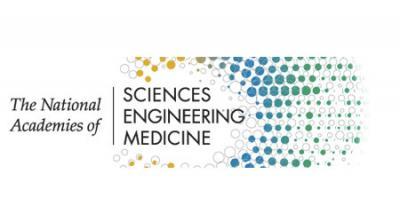Proceedings of a Workshop—in Brief
INTRODUCTION
There is a growing body of evidence demonstrating the value of incorporating youth voices in the development of research and programming aimed at supporting youth well-being. Participatory methods have the potential to help address pressing challenges to youth well-being with more effective, relevant, and sustainable interventions, and in ways that engage historically marginalized communities among youth. However, their use often requires additional time, budgetary expenditures, and training. Given the growing use of such methods, there are opportunities to learn how to better incorporate participatory methods into research, systems, and programs for child well-being and, for developing broader networks of experts engaging with participatory methods. With this context in mind, on October 11 and 12, 2023, the Forum for Children’s Well-Being hosted a two-day virtual public workshop, The Science of Engaging Youth Lived Experience in Health Research, Practice, and Policy, which was designed to explore:
- Evidence demonstrating the impact of youth participatory methods including the potential for participatory methods to produce more effective, relevant, and sustainable interventions;
- The potential for participatory methods to engage historically marginalized communities among youth;
- The challenges of instituting participatory methods, including time, budgetary expenditures, and training; and
- Opportunities to better incorporate participatory methods into research, systems, and programs for child well-being.
Dashia Wright (University of Kentucky Counseling and Psychology Masters Student, youth leader, and planning committee member) noted the workshop had been developed in partnership with youth leaders who played an essential role in shaping its agenda and objectives, and who would participate throughout the workshop as expert speakers and moderators. Leslie Walker-Harding (MD, forum co-chair, Ford/Morgan Endowed Professor, and Chair of the Department of Pediatrics at Seattle Children’s Hospital) urged the audience to “remember that the knowledge of youth is essential, and the power of youth voices is immeasurable”, and expressed hope that the vision of youth leaders could contribute to a brighter future for us all.
YOUTH LEADERS ROUNDTABLE
To begin the workshop, four youth leaders engaged in a guided conversation that was moderated by Wright. She invited each of the speakers to introduce themselves and share a description of their work around youth lived experience and partnership.
Maygan Martinez is Co-Founder and Director of the 1999 Collective, a nonprofit in Utah to help youth transitioning out of foster care. She serves as co-chair of the Client Focused Core Function Group for the Salt Lake Valley Coalition to End Homelessness, Chair of the Lived Expert Task Group and Youth Experiencing Homelessness Task Group, and serves as President of the Youth Advisory Board hosted at Salt Lake County Youth Services.
Grace Minakowski is a high school junior and Legislative Chair of the Maryland Youth Advisory Council, which is a state council created to advise lawmakers on youth policy and serve as the voice of youth in Maryland. She works directly on legislative and lobbying efforts for youth-focused bills.
Trace Terrell is a youth mental health advocate and sophomore at Johns Hopkins University studying public health and writing. He has previously volunteered with Youth Line (a teen crisis line) and focuses his advocacy efforts on expanding access to mental health resources and peer support for adolescents. Terrell has also testified before Congress on the youth mental health crisis.
Minhal Nazeer is a high school senior from Louisville, Kentucky representing the Kentucky Student Voice Team (KSVT), where she serves as a research lead. Her team has published reports on topics including youth mental health during the COVID-19 pandemic; race and ethnicity in schools; and college readiness. Nazeer focuses her work on assessing student perspectives to inform education policy and advocacy in her state.
READ MORE

